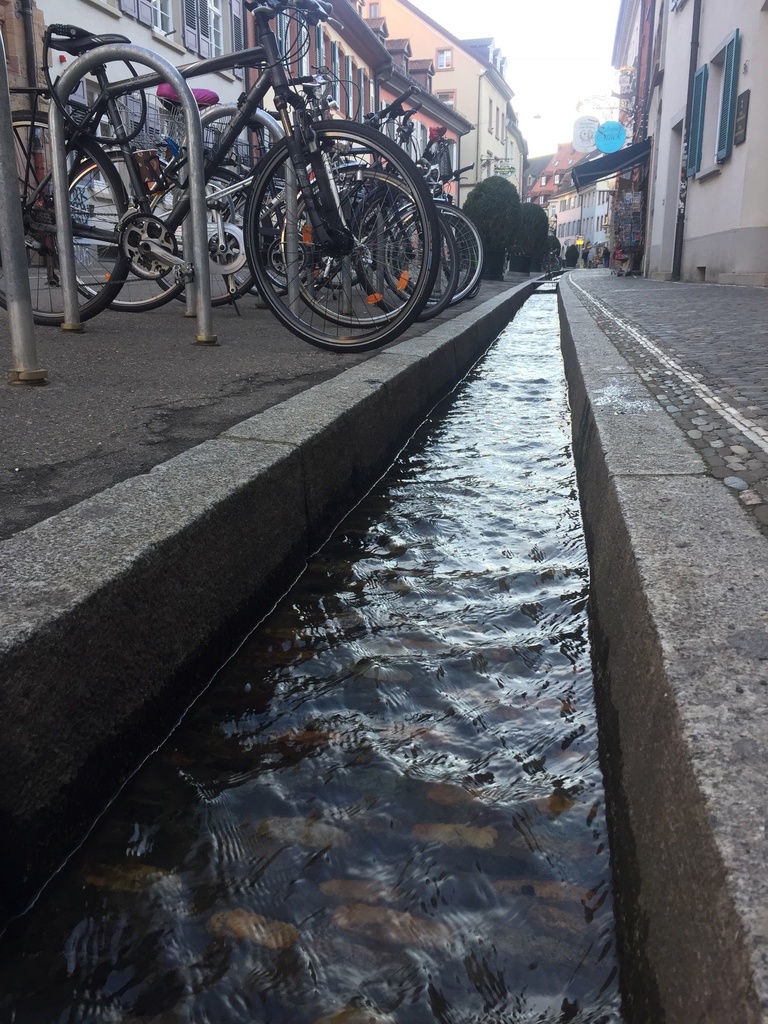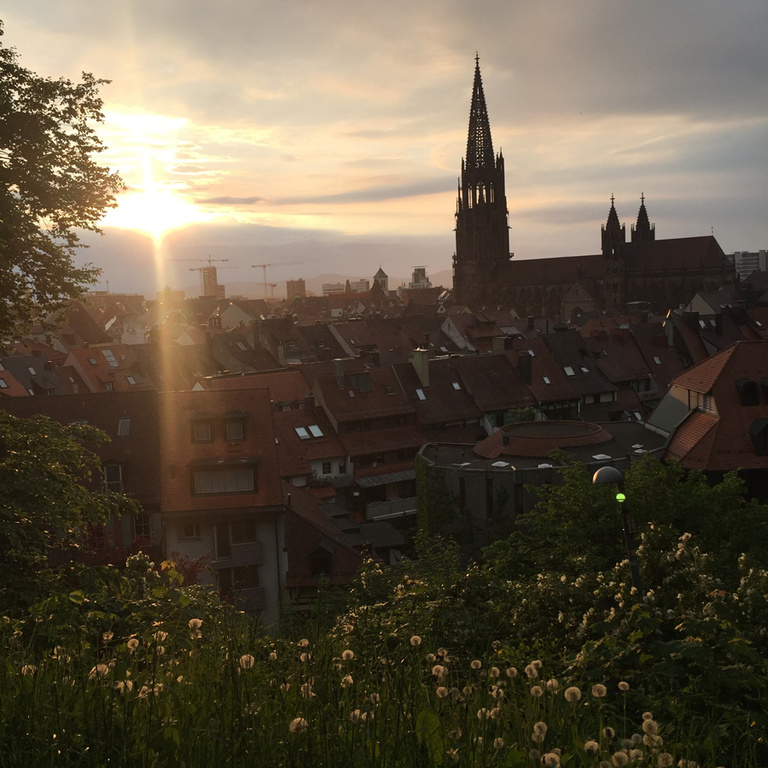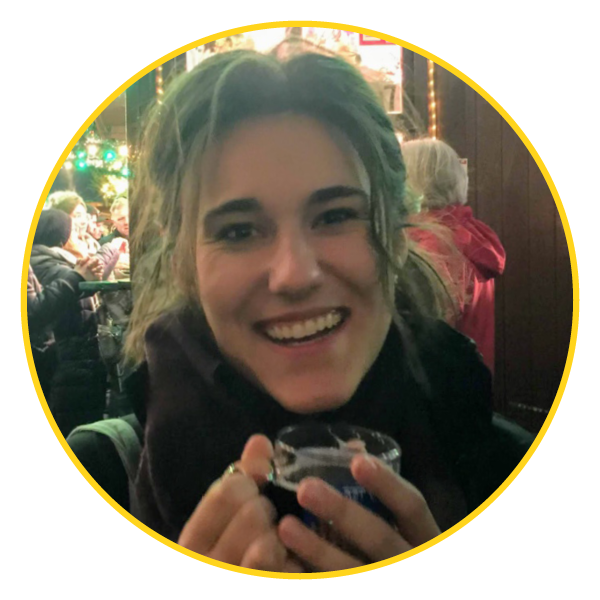
Carnival Parade, Mainz am Rhine
Grüßt euch! Hallo von der wondershöne Stadt Freiburg in Breisgau! (Greetings and hello from the beautiful city of Freiburg in Breisgau!) It’s summer here in Germany and the flowers are blooming, the Bächle are flowing and I’m about to begin my second and final semester in Freiburg. As a student studying for a year abroad, in comparison to the more common single semester programs, I’ve been given a lot of time to reflect on my study abroad experience over the last nine and a half months, and surprise, surprise, most of my reflection has been about German! As a German and history double major, my time in Germany has afforded me a plethora of opportunities to explore the history and language of this wonderful country. I am so grateful for my year abroad, because it has allowed me the opportunity to build a life for myself completely within a different culture, and part of building that life has been learning to live my life in German.
Learning a new language is never truly easy. For all of us, speech is how we express our personality, crack jokes, and connect with one another. For me, speaking English is as natural as breathing, and it was quite a shock when I arrived in Freiburg to realize that I could debate world history in English but couldn’t ask for a fork in German. I felt like a baby, a beginner, a complete fool! How was I supposed to navigate a university system, open a bank account and make friends if I didn’t understand how to say fork and spoon in my second language? The answer - by making a lot of mistakes. It’s been a wild ride, and I’m not done learning yet; but over the last nine months, I’ve learned how I as a language learner can navigate living in a second language and all the mistakes and lessons that come with it.

A Bächle or little creek. Freiburg is crisscrossed with these little rivers, bringing water to the city and joy to little kiddos everywhere.
Now I know not all of us are studying abroad to learn a language, but I hope that my mistakes can at least give you a chuckle and at best help you be more prepared to take on the challenges that come with learning to live in a foreign language.
Jumping in
I never liked going swimming in early summer. The pool was always just a little too cold, and the sun was never warm enough to cannonball into the water. I would always end up dipping my toes in, then my knees and slowly easing into the water. It was kind of painful and honestly, I always regretted not launching myself into the pool to begin with. That’s how I feel about language immersion. You’ve got to go all in. The trick - you need to be stubborn.
Learning another language is HARD! You need to train your brain to see the world through a new lens, one with words like Tannenzapfen or Klimawandle instead of pinecone or climate change. It is incredibly tricky to achieve this shifted point of view and honestly, there have been so many days where I wanted to give up on speaking German in general. I figured out that I couldn’t just depend on living in another country to teach me the language by absorption, I needed to motivate myself. I began to do this through simple things such as actually clicking the German Audio button on Netflix and listening to my favorite TV series in my foreign language. This was always an exhausting decision, but after a couple of weeks, I found myself wanting to hear German instead of English in the media I used.
There have always been opportunities to use English around me, and it has taken a lot of willpower to choose to begin a conversation in German, especially when you know that it won’t be as easy to communicate what you mean in your second language. I try to look at speaking a foreign language as a sequence of small steps. Maybe I don’t have a full-fledged conversation in German every day, but I try to only listen to German music. I recently switched my laptop to German, and I try to write all my to-do lists in German too. It’s not a lot but every day I feel myself getting just a little bit better.

Morning view of Berlin in January, chilly but beautiful!
Learn to laugh at yourself
In March of this year, I was given the awesome opportunity to celebrate Carnival in one of the biggest carnival cities in Germany, Mainz. Mainz is famed for its wild and wonderful parade with rows and rows of marching Prinzengarde and crazy floats. The costumes are elaborate and everyone really gets in on the spirit of Carnival, or as they call it Fasching. The best part of the entire experience was being guided through all of the free concerts and parades by the host sister of my good friend Laura Marie Leonie, who lives in Mainzer and showed us how to party “wie einer Mianzer”. The weekend we spent with them was full of cheerful shouts of “Hellau!” (a traditional Carnival greeting) and the fight over who would get the Handkäse, or hand cheese that was thrown from the beloved cheese float. Es war wunderbar! (It was wonderful!)
The only aspect of the whole weekend that was difficult was that it was conducted fully in German. This was an amazing opportunity to finally work on my spoken German, and although I did learn a lot of new words and crack a few jokes, I also made a lot of dumb mistakes. I still remember sitting at the dinner table, after eating a huge meal of red cabbage with bratwurst and being pressured by my friend’s host mom to keep eating. I meant to respond to her offer of more food by saying, “danke, aber ich bin jezt satt” (thank you but I’m full). What I actually ended up saying was “danke, aber ich bin jezt saft” (thank you but I think I’m juice). The difference between a T and an F in the words Satt and Saft turned a polite refusal into a ridiculous mistake. The worst thing was, I didn’t realize what I had said and ended up repeating loudly to the whole dinner table that I was really “juice” and because I was “juice” I couldn’t possibly eat another bratwurst. Needless to say, I turned about fifteen shades of red when I realized my mistake, but after a good laugh, it’s become one of my favorite stories to tell.
My running list of mistakes in German is long and only getting longer by the day. That being said, learning to laugh at myself and my issues with language, has been a skill that took a long time to develop. Unfortunately, it is inevitable that you will make mistakes in your second language. They might be huge blunders or little failures but they will happen all the same. It might be hard but understanding that little failures are part of the learning process is the only way to motivate yourself to continue to pursue a better understanding of your new language, and who knows, perhaps you’ll come home with a few good stories of your own.

The Sun setting over the Freiburg Münster (Cathedral)
Speak like a Local
Words are fantastic things. They allow us to describe our world, our thoughts, and our emotions. Words give us the opportunity to paint our experiences and stories with our own pallet of adjectives and verbs that bring the world to life with sound. I think words are powerful, and that’s why when I went to Germany. I wanted to learn what German actually sounded like in an everyday context. Sure it’s interesting to learn vocabulary from a book or a lesson, but there’s nothing like learning a language from those who truly speak it. Over the last eight months, I’ve learned some pretty cool slang and fun terms in German that have made my experience of the language 100% more authentic and exciting. There’s no rhyme or reason to learning slang, but I’ve found a lot of success in just listening to those around me when they talk. It’s been amazing to see my collection of words and phrases grow over the last year, and for your reading pleasure I’ve gathered a few of my favorite German phrases and words below:
Genau: Directly translated genau means exactly, but in everyday speech, genau functions like, “like” in English. Just finished a sentence? End it with genau. Can’t think of how to begin a thought? Try genau. Feeling lazy and don’t really want to contribute much to a conversation? Genau is perfect for you. It’s truly a magical word.
Er hat nichts in der birne: This phrase means; he has nothing in the pear. It basically means, they are dumb, or air-headed. The first time my professor used this phrase in class, I couldn’t stop laughing.
Es ist mir wurst: Translation: it’s all sausage to me. The correct English meaning would be, I don’t care, but I think I like the wurst version better.
Alter!: Alter is basically the closest German equivalent to dude or bro. I don’t know if I’m cool enough to use it and still be taken seriously, but in any case, it’s a fantastic word!
Moin, moin: This is a morning greeting from North Germany. I love it because it sounds so incredibly bouncy and fun in the morning. I get weird looks when I greet people here in South Germany with moin, moin but to me, it makes mornings just a little brighter.
In conclusion, learning a language is an experience unlike any other. It is not a skill you receive through flashcards and textbooks alone, but through personal interactions, cultural experiences and curiosity. It might be hard, and even embarrassing at times but I promise that pursuing a second language won’t only make navigating your host country easier, it will also make your world just a little bit bigger, brighter, better then you could have ever imagined. Viel Glück (good luck) and happy language learning!

Maggie Fischer is a German and history major at the University of Iowa spending the 2018-19 year in Germany on the Academic Year in Freiburg program.